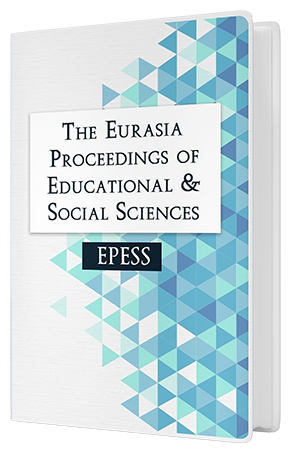Investigation of the South African Economy Performance: A Pre, During and Post Covid-19 Era Assessment
DOI:
https://doi.org/10.55549/epess.1412830Keywords:
Economic development, Economic Indicators and performance, Economic resilienceAbstract
The COVID-19 brought disruptions and decline in the economic performance of many countries most especially countries that are less resilient to economic disruptions. Thus, the purpose of this study is to investigate the economic performance of South Africa before, during and after the COVID-19 periods. To measure the economic performance of the South Africa during these periods, secondary data was employed and grouped as follows: national income and prices, labour market, Savings and investment, fiscal position, money and credit, and balance of payments. The descriptive analysis, correlation analysis as well as Wilcoxon signed-rank test were carried out on the dataset using the Statistical Package for Social Science (SPSS) 2022 version. The results obtained indicated some improvements in certain economic indicators such as gross national savings, Gross Domestic Product (GDP), export and import growth as well as gross reserves during the COVID and post COVID periods. Nevertheless, the country witnessed a decline in performance of some economic indicators such as employment rate, public investment, public savings, unit labour rate, gross government debt, annual consumer price inflator, broad money, credit to private sector, current account balance and terms of trade for all the periods. The results further indicate a gradual improvement in the areas of private investment, revenue, expenditure and lending, overall, primary and structural balances after the COVID-19 era. The findings obtained in this study may assist the government, public and private sectors to make informed decisions to promote South Africa’s economic development and resilience.Downloads
Published
Issue
Section
License
Copyright (c) 2023 The Eurasia Proceedings of Educational and Social Sciences

This work is licensed under a Creative Commons Attribution-NonCommercial-ShareAlike 4.0 International License.
The articles may be used for research, teaching, and private study purposes. Any substantial or systematic reproduction, redistribution, reselling, loan, sub-licensing, systematic supply, or distribution in any form to anyone is expressly forbidden. Authors alone are responsible for the contents of their articles. The journal owns the copyright of the articles. The publisher shall not be liable for any loss, actions, claims, proceedings, demand, or costs or damages whatsoever or howsoever caused arising directly or indirectly in connection with or arising out of the use of the research material. All authors are requested to disclose any actual or potential conflict of interest including any financial, personal or other relationships with other people or organizations regarding the submitted work.




